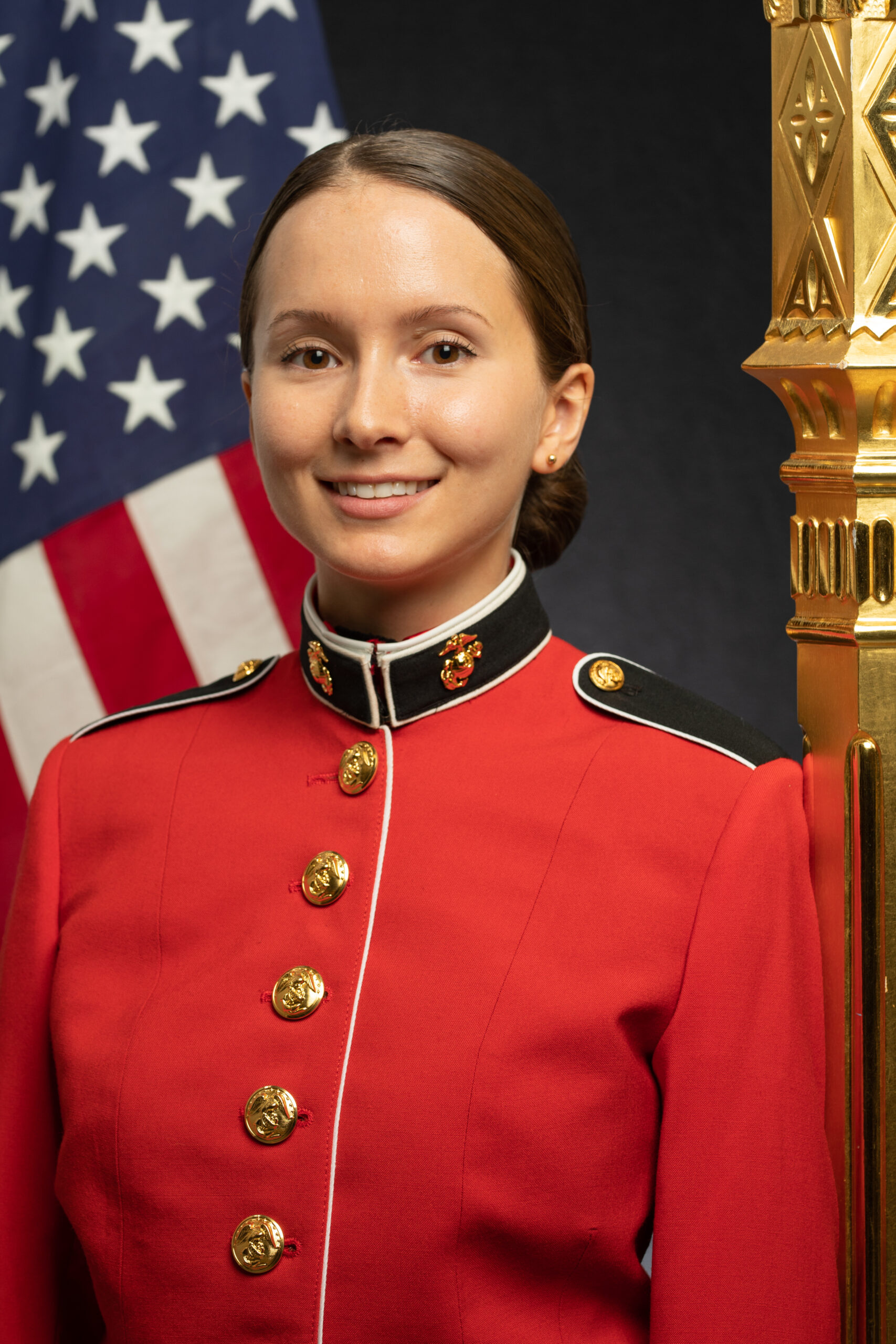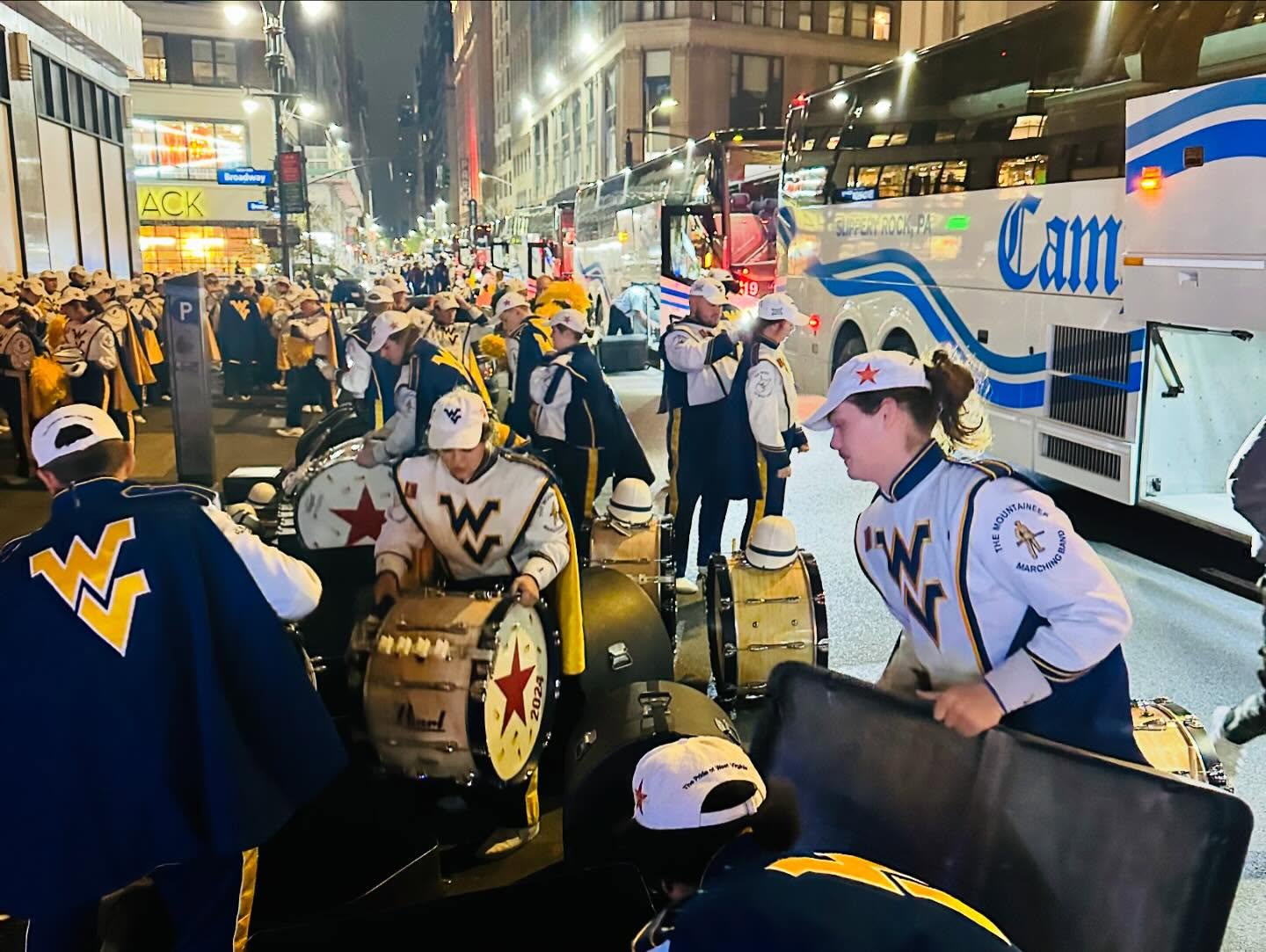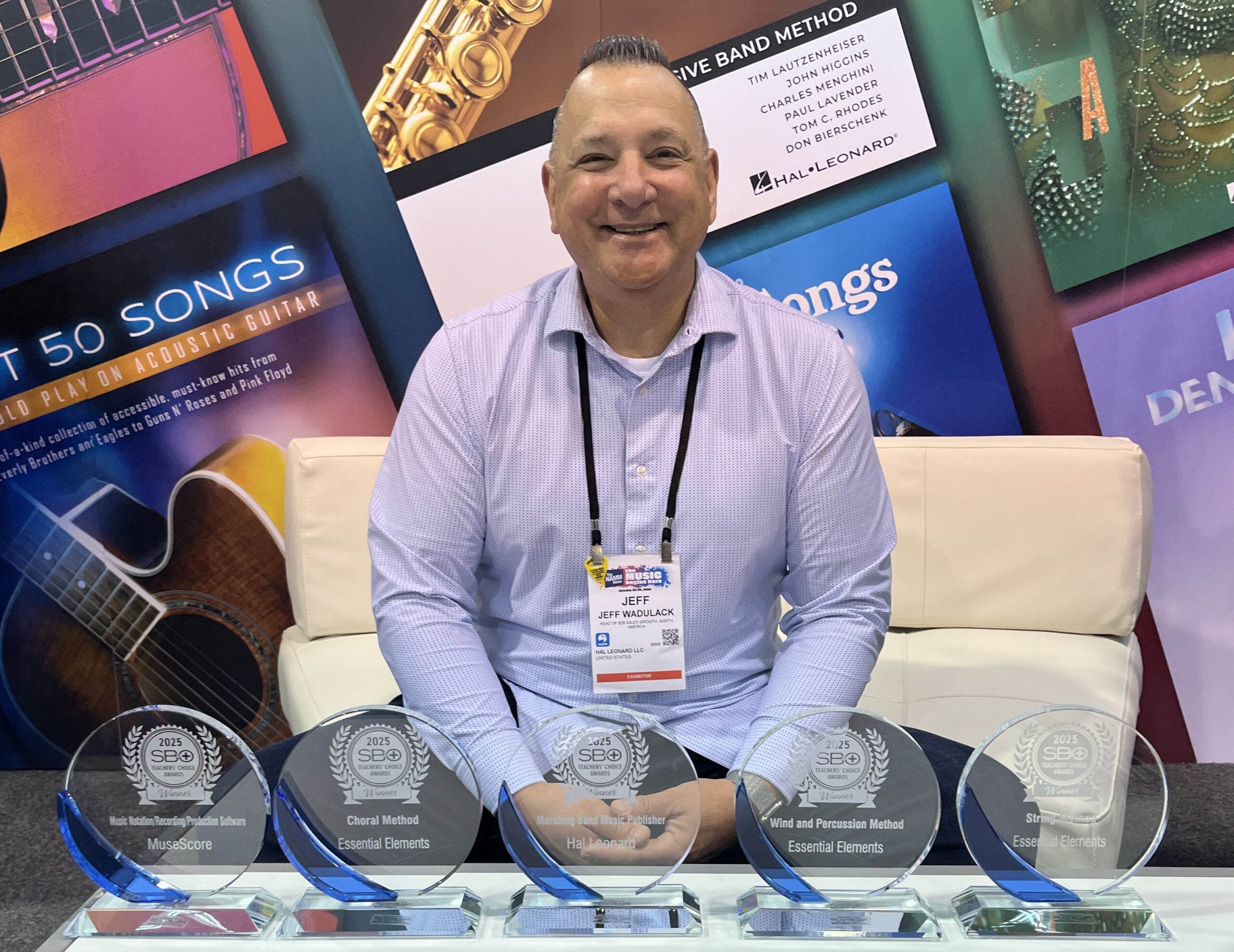A conversation with the author of Habits of a Successful Band Director
 In 2003, Scott Rush, then director of bands at Wando High School in Mt. Pleasant, South Carolina, and Tim Lautzenheiser, noted motivational speaker and music advocate, had a long conversation on student teaching while Lautzenheiser was in town to do a workshop on student leadership. That conversation continued between the two over the next few years, until Rush decided to put his thoughts to paper, resulting in the highly successful band director how-to manual, Habits of a Successful Band Director: Pitfalls and Solutions, first published by Focus on Excellence and later by GIA.
In 2003, Scott Rush, then director of bands at Wando High School in Mt. Pleasant, South Carolina, and Tim Lautzenheiser, noted motivational speaker and music advocate, had a long conversation on student teaching while Lautzenheiser was in town to do a workshop on student leadership. That conversation continued between the two over the next few years, until Rush decided to put his thoughts to paper, resulting in the highly successful band director how-to manual, Habits of a Successful Band Director: Pitfalls and Solutions, first published by Focus on Excellence and later by GIA.
Under Rush’s leadership, the Wando Bands were state marching champs for nine consecutive years, from 2005 to 2013, performed at the Midwest Clinic in 2007, and were awarded the Sudler Flag for concert excellence.
In this recent conversation with SBO, Scott Rush discusses some of the key elements of building a successful career in music education.
SBO: What was the impetus for writing Habits of a Successful Band Director?
Scott Rush: I didn’t feel at the time that there was a nuts-and-bolts book that was available to band directors that they could go to as a resource. And I wasn’t finding that in formal education in the college methods classes that there was an effective resource, either, not just for veteran band directors who are out in the field, but also the younger ones coming up.
It’s not just teaching strategies, it’s how to teach timing and tuning and tone and technique and balance and blend and articulation and dynamics – those kinds of things. But also the fact that there were so many other things that we’re being inundated with as teachers: the paperwork, dealing with booster clubs, dealing with administration, classroom management, and all of the other things that people weren’t necessarily prepared for when they came out of their university setting. I wanted to write a first book that teachers could just flip through a chapter and find a subject and keep it up on their desk, so it was purposely void of what I call “educational psychobabble.”
SBO: So how did you determine best practices that are presented in the book?

SR: My first three years that I taught, I taught middle school. And my first year was an absolute disaster, as it is for many teachers. In my second year of teaching, I thought that I should come up with some kind of methodology because, quite frankly, I felt like I had the information – I was a graduate of the New Conservatory of Music with a master’s degree – but I wasn’t being very effective in delivering that information. As a matter of fact, with the middle school kids, I was probably talking over their heads. So I stopped in my tracks and decided that I had to come up with a methodology first for what I call “equipping their tool boxes” and for teaching what I call the components of playing: timing, tuning, tone, and so on.
And I also wanted to cross the threshold from the components of playing to teaching my students to not just make music but to fall in love with music making. And so, really starting my second year of teaching was the beginning of a process that is still going on today. I’m constantly trying to find ways to better deliver instruction and make the light bulbs go on for all those students.
SBO: Is there a single underlying element or approach that is critical to survival in this field?
SR: The constant desire to hone our teaching strategies is just something that all teachers have to engage. We have to break down teaching strategies so we’re not only looking at what to teach, but also how to teach it. First of all, the old model of “I taught it one way; if you didn’t get it, sorry” is out the window. We have to come up with multiple ways of teaching the same concept.
Over the past decade, technology has played a large role in coming up with those different ways to make the light bulbs go on. Still, that is one of the hardest things to implement because you can use technology in the classroom and still have a lousy sounding ensemble – does that make sense?
SBO: Yeah, absolutely. Technology is not a panacea to make all your troubles go away.
SR: That’s right. So we have to figure out ways to effectively use technology so that it will improve student performance. There are many places where iPads are readily available in the classrooms, but we have to find ways to effectively use them. We don’t want to just say that we’re using the technology – we want to actually improve student performance.
SBO: What are some the other key points that educators should be focusing on to keep their heads above water in the early years, or to stay current, for those who’ve been at it for 20 or 25 years?
SR: The idea of devising teaching strategies that are effective is so important, as well as devising multiple ways to teach the same concepts.
One of the things that we do is ask our students at the end of the year to make a list of the components of playing, and we write that list on the board. We then ask them how we taught those elements, or how they learned them. Getting that feedback from students is very helpful. Whether they list various exercises that we’ve done, various handouts that we’ve given, analogies that we used, or any number of things, if the students can articulate to us how we taught it and how they learned it, then, for me, that’s golden because really, we haven’t taught something until the students have learned it.
Teachers should try to have a written plan – I call it a teaching inventory sheet. My teaching inventory sheet is divided up into four nine-week sections, and I have a written plan for what I want to teach in each section. Part of that teaching process is the evolution from equipping students’ toolboxes with the components of playing to crossing the threshold to the music-making process, and our language changes when we do that. It’s no longer “shorter-longer,” “louder-softer,” or “in tune-out of tune,” but it’s “tension-release” or “phrase-shaping” – it’s a different type of dialogue that we give our students.
The written plan that students can look at and use as a compass that guides them from week to week allows them to see progress. And obviously it has to be a document that has the potential to change, because we don’t know when we start out to teach something if the students will grasp it immediately or not. So you have to have the ability to come up with those multiple ways to teach the same concept in case the students don’t pick it up the first time.
SBO: Sure. And to suit different learning styles, too, right?
SR: Absolutely. And the light bulbs just go on differently for different students, and so one aspect of the art of teaching is finding that one little nugget that makes learning easier.
SBO: Broadly speaking, is there anything that you see teachers doing now that you think they should be doing less of?
SR: I don’t know if this answers the question, but I believe that about 50 percent of rehearsal time should be spent on fundamentals. A lot of times, teachers will use the music that they are playing to teach concepts – and there is nothing wrong with that because students need to have great quality music in front of them. But if you spend more time on fundamentals, then what you’re doing at that point is you are teaching for transfer. There are a series of strategies that address not only how to teach the various components of playing, but to take an exercise and use it one day, for example, to work on balance, and the next day to work on blend, and the day after that on timing, and that all might even be the same exercise. Or if you do a crescendo-diminuendo exercise, for instance, you can talk about balancing to the bottom, you can talk about blending, you can talk about just intonation if there was a natural chord and lowering the third and raising the fifth, you can talk about the natural tendencies of brass players and flute players to go inherently sharp in their crescendo and go inherently flat in their decrescendo and the single reeds do the opposite – when they crescendo, they go flat or they decrescendo, they go sharp.
Part of fundamental times should also be sight reading every day. If you do that, you don’t have to take as much time to prepare for performances because the students have the skills and they’re able to apply those skills into the entities that you are playing.
So, some teachers will spend an inordinate amount of time on one piece of music and that’s something that in some cases they do too much of. They need to balance that out with more time spent on fundamentals. And when you do spend time on fundamentals, then when you prepare a specific piece, you are simply asking students to transfer the concepts that they already know into a piece of music.
SBO: What about non-musical survival tips – is there anything you have found to be critical in terms of program and classroom management?
SR: You have to have some type of organizational process in place, and different people approach the ability to stay organized in different ways. You have to be able to delegate. One of the very first things I talk about in the book is a band director outline, which includes seven pages about the responsibilities that we have as band directors. The very last one is about the music making, and everything else covers those non-musical, non-pedagogical things that we have to do.
It is very useful to have a mentor to help you negotiate through the muck of the non-pedagogical issues. At Wando High School, we had the luxury of having three band directors and we would literally take that outline and divide it up between the three of us, color-coding each item green, red, and white, so there was clarity from about who was responsible for each element.
Also, there are some responsibilities that are clearly band director responsibilities and there are other responsibilities that you can delegate to booster club members. Not just in terms of committing to a position, like a communication person or an equipment person, but you can just ask somebody that you really trust to come in and help you with some of the non-pedagogical aspects of the program.
SBO: Would you include student leaders in that group, too, as people that you might enlist to help run the program?
SR: Absolutely. One of the big things with student leadership with us is to give them clear roles, and many of the roles are intended to help take responsibilities off of the director’s shoulders. We call it “taking care of the customers.” Along with them taking care of the other folks in the band – especially younger ones – one of the big responsibilities in student leadership is for them to make the lives of the band directors all that much easier so that they can spend more time concentrating on the music-making process.
SBO: That makes sense. Any final thoughts?
SR: One of the challenges that we have is getting our students to fall in love with music and music making and for that process to resonate with them for the rest of their lives. Some of them will be great consumers of the art. Some of them will be active participants. But one of our goals is to make sure they all fall in love with music and music making.
One of my mentors, Ben Zander, said you want to see in your students that they have shining eyes. And so I think one of the measurements for me about a successful program is if there is a feeling that the students are falling in love with music and music making – and that they have shining eyes.






















